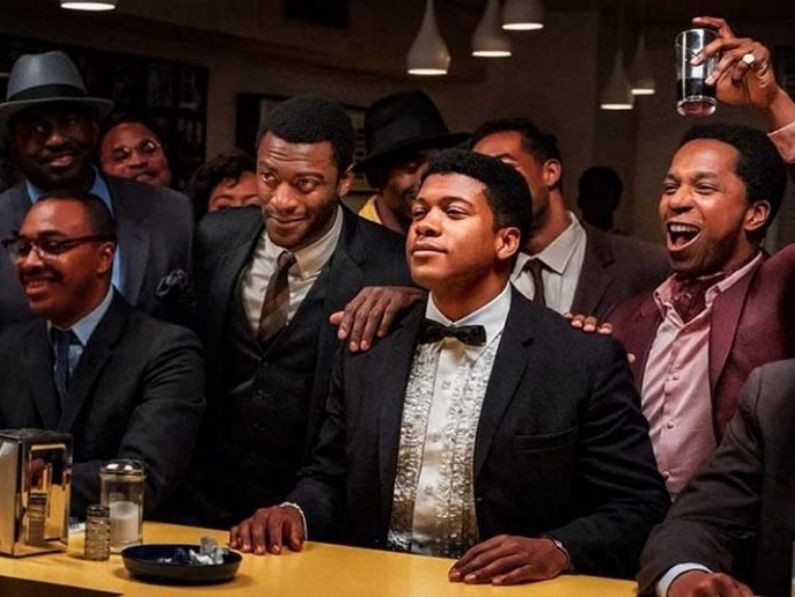I’ve talked before on On Set about the critical role dialogue plays in the overall effectiveness of a film. When it’s great, dialogue lifts everything. When it’s not great, little else can be. Unlike film, however, theater fully depends on spoken words to tell its stories. Movies have all sorts of tricks available to shrink the distance between the performer and the audience. Let’s be clear, though. The difference between the stage proscenium and the camera lens, in terms of perspective and flexibility, is a topic too huge to tackle here. Suffice it to say that, as art forms, theater and film share relatively few things. And the amount of heavy lifting required by dialogue might be the biggest variable.
Movie versions of Shakespeare masterpieces are abundant, of course. By itself, Romeo and Juliet has earned at least a dozen notable adaptions and countless forgettable ones. What might be less obvious to a casual filmgoer are the more modern theatrical conversions, which are also pretty common. Think “Amadeus,” “Glengarry Glen Ross,” “Driving Miss Daisy” and “A Few Good Men” and you’ll start to see what I mean. All were based on plays. The most recent popular example is “Fences” from 2016. A defining characteristic in each of these films is the quality and quantity of words. These are very “talky” movies. And even though the cinematic toolkit allows for greater acting subtlety and a focus on non-verbal action, there is no doubt that voices are moving things along. The long monologues and static scenes are risky on camera though, since they lack the urgency of live performance. The editing process is critical if the real-time, ephemeral intent of the playwright has any chance of surviving the curated polish of a motion picture director.
“One Night in Miami,” out this week on Amazon, is Regina King’s first film as a director. The script was adapted by Kemp Powers from his 2013 play of the same name. It’s a fictional account of a real event, when friends Malcolm X, Jim Brown, and Sam Cooke gathered in private to celebrate Cassius Clay’s victory over Sonny Liston. The date of that night was February 25, 1964, so the topics of debate were what you would expect. Civil Rights. Celebrity. Faith. Personal responsibility. Each of the men was facing a career transition as well, so emotions were high as they navigated each other’s sensitivities. It’s hard to believe, watching these icons tear down and rebuild each other that Cooke and Malcolm will be dead within a year. They seem immortal. Regina King has a wonderful sense for pacing and never lets any of the speeches drag things down. Her eye for angle and spacing mixes up the visual syntax nicely and makes good use of the extra dimension she has at her disposal. You can definitely feel the ghostly presence of a playhouse lighting designer in the way your eye is lead around the screen. But this movie feels like theater in only the best ways.
The casting of this larger-than-life quartet is spot on. Eli Goree’s version of Cassius Clay (soon to be Muhammad Ali) is a perfect study of cadence and mannerism. And Aldis Hodge absolutely nails the frowning physicality of Jim Brown near the end of his NFL days. Leslie Odom, Jr is great in everything he does. And Kingsley Ben-Adir is a wonder as the film’s restless moral compass. Like that tiny Miami hotel room, the screen barely contains the personalities of these giants. This might be the one significant way the big screen will never be able to compete with a live space. The actors here feel a bit contained, especially when things get heated. It would probably be thrilling to hear them yell, live, in a building designed to project it. This movie does have a lot of talking. But that’s because it has a lot to say. And the deeper kind of attention required to get the most of out the experience is worth it.
“One Night in Miami’s” heart is as big as its conscience. These men are saying things to each other back in 1964 that still need to be heard by every one of us today. Regina King knows this, and I appreciate the light touch she brings to the endeavor. If she gets a best director nomination, and she should, she’ll be the first black female to do so.





